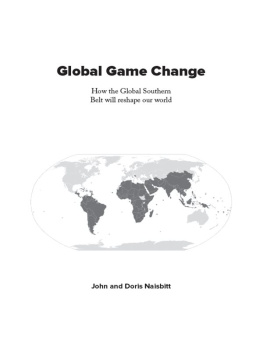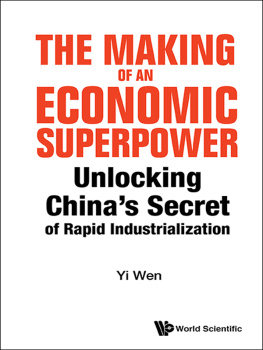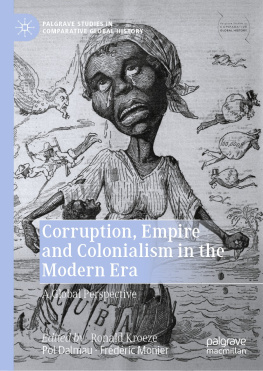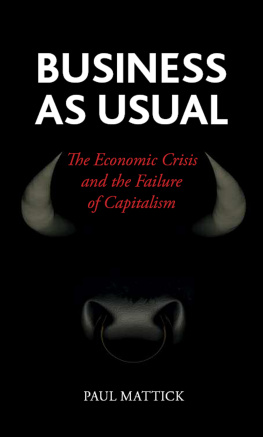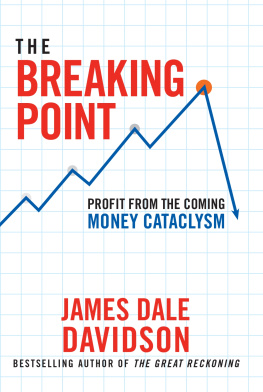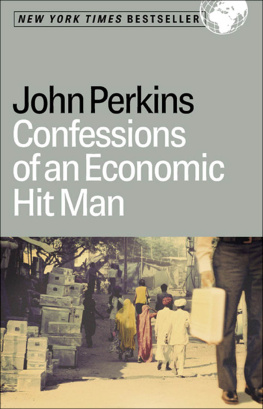A GAME AS OLD AS EMPIRE
A GAME AS OLD AS EMPIRE
The Secret World of Economic Hit Men
and the Web of Global Corruption
Edited by Steven Hiatt
Introduction by John Perkins,
author of Confessions of an Economic Hit Man

A Game As Old As Empire
Copyright 2007 by Berrett-Koehler Publishers, Inc.
All rights reserved. No part of this publication may be reproduced, distributed, or transmitted in any form or by any means, including photocopying, recording, or other electronic or mechanical methods, without the prior written permission of the publisher, except in the case of brief quotations embodied in critical reviews and certain other noncommercial uses permitted by copyright law. For permission requests, write to the publisher, addressed Attention: Permissions Coordinator, at the address below.

Berrett-Koehler Publishers, Inc.
235 Montgomery Street, Suite 650
San Francisco, California 94104-2916
Tel: (415) 288-0260, Fax: (415) 362-2512
www.bkconnection.com
Ordering information for print editions
Quantity sales. Special discounts are available on quantity purchases by corporations, associations, and others. For details, contact the Special Sales Department at the Berrett-Koehler address above.
Individual sales. Berrett-Koehler publications are available through most bookstores. They can also be ordered directly from Berrett-Koehler: Tel: (800) 929-2929; Fax: (802) 864-7626; www.bkconnection.com
Orders for college textbook/course adoption use. Please contact Berrett-Koehler: Tel: (800) 929-2929; Fax: (802) 864-7626.
Orders by U.S. trade bookstores and wholesalers. Please contact Ingram Publisher Services, Tel: (800) 509-4887; Fax: (800) 838-1149; E-mail: customer.service@ingram publisherservices.com; or visit www.ingrampublisherservices.com/Ordering for details about electronic ordering.
Berrett-Koehler and the BK logo are registered trademarks of Berrett-Koehler
Publishers, Inc.
First Edition
Hardcover print edition ISBN 978-1-57675-395-8
PDF e-book ISBN 978-1-57675-798-7
IDPF e-book ISBN 978-1-60509-691-9
2010-2
Project management, design, and composition by Steven Hiatt / Hiatt & Dragon, San
Francisco
Copyediting: Zipporah Collins
Proofreading: Tom Hassett
Cover design: MvB Design
Contents
Introduction: New Confessions and Revelations from the
World of Economic Hit Men
John Perkins
Economic hit men serve a small corporate elite whose influence is pervasive, no matter who wins formal elections, and whose goals are ever more profit and power: the preservation and extension of an empire. In Confessions of an Economic Hit Man John Perkins told the story of his own journey from servant of empire to advocate for oppressed and exploited peoples. Here Perkins links his experiences to new confessions and revelations in this book that reveal the dark side of globalization.
Steven Hiatt
Third World countries pay more than $375 billion a year in debt service, twenty times the amount of foreign aid they receive. This system has been called a Marshall Plan in reverse, with the countries of the Global South subsidizing the wealthy North, even as half the worlds population lives on less than $2 a day. How does such an unjust system maintain itself? Steven Hiatt outlines the web of controlfinancial, political, and militarythat maintains this system and explains why its so hard for Third World countries to escape.
S. C. Gwynne
Rising oil prices created an oversupply of petrodollar deposits in international banks, and eager young bankers helped recycle this money into new loans to developing countries to finance dubious projects. Sam Gwynne traveled the globe on behalf of U.S. banks, helping ensnare Third World countries in debt.
John Christensen
At least $500 billion in dirty money flows each year from poor countries into offshore accounts managed by Western banks, dwarfing the amount those nations receive in foreign aid. The sources of this money range from tax evasion, kickbacks, and capital flight to money laundering and drug trafficking. John Christensen was an offshore banker who found himself managing these secret accounts. He shows how the offshore banking system extracts tribute from countries that can least afford it and explains why this black economy has become essential to the international corporate elite.
Lucy Komisar
The Bank of Credit and Commerce International (BCCI) was a useful tool for many powerful clients, ranging from the CIA and the Medelln cartel to Osama bin Laden, al-Qaeda, and influential figures in both the Republican and Democratic parties. When BCCI was finally shut down, as much as $15 billion had been lost or stolenthe biggest bank fraud in the world. Lucy Komisar reveals why banking authorities looked the other way for so long, and how BCCIs long-time allies in Washington were able to block any meaningful investigation.
Kathleen Kern
Civil strife in the Democratic Republic of Congo has cost 4 million lives in the last ten years, as militias and warlords fight over the countrys resources. The atrocities have been funded, at least indirectly, by some of the biggest Western corporations. They see the country as only a source of cheap coltanvital to making semiconductorsand other minerals. Kathleen Kern explores the direct relationship between the suffering of the Congolese people and the low prices Westerners pay for cell phones and laptops.
Andrew Rowell and James Marriott
Some 30 percent of Americas oil will come from Africa by 2015, and multinational oil companies are increasingly resorting to private armies to protect their operations there. Communities in the Niger Delta have been campaigning for a share of the oil wealth pumped from under their land. In 2006, Nigel Watson-Clark was working as a Shell security officer in Nigeria, protecting offshore oil rigsa frontline soldier in the web of oil exploitation. Taken hostage during a raid by local militants, he found himself in the middle of the struggle for Nigerias oil.
Greg Muttitt
While the Iraqi people struggle to define their future amid political chaos and violence, the fate of their most valuable economic asset, oil, is being decided behind closed doors. Oil production sharing agreements being forced on Iraq will cost the country hundreds of billions of dollars in lost revenue, while funneling enormous profits to foreign companies. Greg Muttitt uncovers a little-known Western foundation, the International Tax and Investment Center, thats providing the hit.
Steve Berkman
The World Bank has pushed a debt-based development strategy for Third World countries for decades. Hundreds of billions in loans were supposed to bring progress, yet the programs have never lived up to their promise. Instead, governing elites amass obscene fortunes while the poor shoulder the burden of paying off the debts. A former World Bank staffer, Steve Berkman presents an inside investigators account of how these schemes work to divert development money into the pockets of corrupt elites and their First World partners.
Next page

